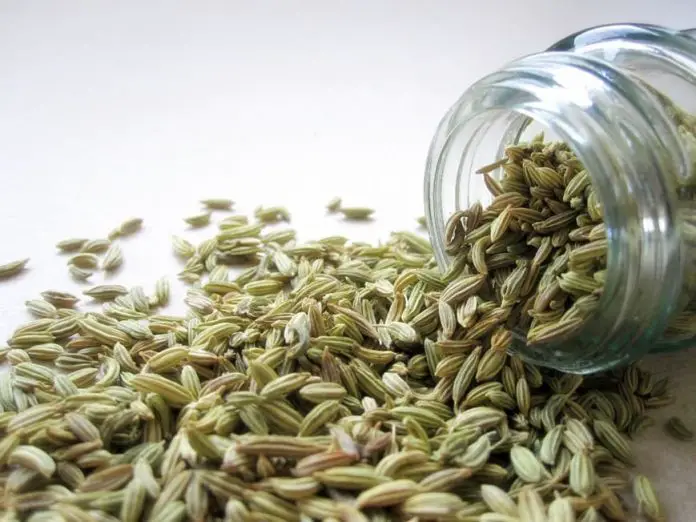Fennel is a perennial herb often used as content in kibble and sometimes in doggie toothpaste and dental chews. It is popular as one of the best after-dinner mints due to its sweet and flavorsome aroma.
Leaving out its breath-freshening attributes, fennel can also be a wholesome treat for them. But there are more reasons to love fennel than the fact that it can get rid of bad breath! In today’s post, we will be discussing some of the health benefits of fennel for dogs and how safe it is to give it to them.
Fennel in packaged dog food
It is nice to know that most high-quality and holistic dog kibble has sweet fennel as an ingredient. Around 2.25% of canine foods contain fennel. Manufacturers use ground fennel because of its key vitamins and nutrients: it can provide vitamins A and C, calcium, and iron among others. The calcium and iron content in fennel helps keep your pup’s teeth and bones strong.
Fennel seeds as an herbal treatment for dogs
There is nothing to waste with fennels. Their bulb and leaves are often used for culinary purposes, and the fruits and the seeds are used in medicine. Fennel seeds are the best form of fennel for canines, although you can also offer it raw. Some canines cannot stand the taste of cooked fennel bulbs, anyway. The seeds are actually the fruit of the fennel plant and dog may not even notice that you added them into his meal.
Fennel seeds can be used as a dewormer for canines. You can make a deworming formula by combining powdered fennel seeds with fresh garlic cloves. The garlic should be grated finely in order to create a compound called allicin. This compound gives garlic its healing properties.
Three of the common signs of worms in dogs are coughing, vomiting, and appetite changes. The amino acid in garlic flushes the worms from your dog’s system. The mixture can be added to their meal.
While the combination of garlic and fennel seeds is an effective home remedy against worms, you should be careful in administering it. As you might have known by now, garlic can be toxic for dogs in high amounts. Fennel can also be as potent as garlic.
Taking this into account, you should only give the mixture in reasonable amounts. One clove of garlic is enough for a dog weighing 15-35 pounds. If your dog weighs less than 15 pounds, half a clove of garlic will do. When the dog weighs more than 35 lbs., you may add up to three cloves of minced garlic. You should not give this mixture to a dog with blood pressure problems or to a one that is pregnant.
Fennel tea for dogs
The easiest way to introduce fennel to your dog is by giving him a cool tea. This can be prepared by adding a teaspoonful of dried fennel seeds to eight ounces of boiling water. That is around 10-30 grams per cup. You may also use fresh fennel seeds when you don’t have any dried ones.
The recommended quantity is around two to four tablespoons for a dog weighing 20 pounds. Simply add or subtract the number of tablespoons as well as the water level depending on the size of your dog.
Fennel tea or fennel-infused water can be given to a dog suffering from constipation or diarrhea. Apart from its ability to relieve constipation, gas, and diarrhea, this tea can also increase appetite and can help if you just switched your dog to a raw diet.
Other ways to use fennel for dogs
- Shampoo – when added with jojoba oil, fennel essential oil can be a luxurious spa treatment shampoo for animals. There are already doggie shampoos containing fennel as the main ingredients. A fennel-infused shampoo can help them with dry and flaky skin because it can eliminate flakiness.
- Flea repellent – simply sprinkle powdered fennel seeds around your dog’s bed and the fleas will surely not thrive there. You may also add a few drops of fennel seed extract in your dog’s bathing water.
- Dog wash sponges – some manufacturers sell soap-infused sponges with fennel essential oil. The fennel oil does not only revive a dog’s dull coat, but also deeply cleanses their skin to thoroughly get rid of toxins.
- Coat freshener – they can get downright stinky, especially after going outside. You may use a spritz or coat freshener with fennel to break up the toxins from your dog’s body. Just be careful to avoid spraying it near his eyes.
Benefits of fennel for canines
It relieves gas and constipation. While there are vegetables that can cause bloating, fennel has the opposite effect. Constipation is a common problem not just for people but also for animals. There are several reasons why dogs get constipated. The most common ones are either too much or too little fiber in their diet and the lack of exercise. Fennel is known as a natural laxative and a good anti-flatulent. It can prevent the buildup of gas in the intestinal tract due to its anti-sposmatic attributes.
It reduces obesity. Fennel seeds are excellent fat-busters because they have certain properties that stave off obesity. The use of fennel for weight loss can be traced back to the Ancient Roman times when women used it to shed the excess pounds while the warriors took it for an optimum health. It also gets rid of the excess water from the body.
It fights bad breath. When you chew fennel seeds, they increases your saliva’s nitrite content. This process help regulate blood pressure in humans. The fennel seed extract is also an excellent gargle for sore throats. Your dog can also benefit from its breath-freshening properties so sprinkle some on his food to say goodbye to bad breath.
It can be a natural remedy for kennel cough. Fennel also works as a natural expectorant and is sometimes used as a remedy for cough. It helps in thinning and loosening phlegm to reduce airway congestion.
It can treat renal colic. Like humans, canines may have urinary stones that can block their urinary tract. But unlike us, they are more prone to metabolic kidney stones than stones caused by infection.
It protects the eyes from macular degeneration. The connection between fennel and the eye health can be traced back thousands of years ago. The Ancient Romans believed these herbs can improve eyesight.
It is a good antioxidant. The most active ingredient of fennel seeds is Anethole which is an organic compound known for its anti-inflammatory attributes. Every 8% of this oil has as much as 80% anethole. This compound is also present in other essential oils. Because of its antioxidant content, fennel can to a very good job at preventing diseases as well as certain types of cancer.
It can lessen the oxidative stress on the cardiovascular system of your dog. Thanks to fennel’s flavonoids, it can prevent some of the effects of neurological diseases. It also has the ability to limit cancer cell growth.
Precautions in giving fennel to dogs
According to the American Society for the Prevention of Cruelty to Animals, fennel is non-toxic to dogs. Its toxic principle is low when consumed in small quantities in food. However, you have to avoid exposing your dog to fennel concentrated oil.
Fennel seeds get their medicinal properties from their volatile oils. Volatile or essential oils cannot be given to breeding, lactating, and pregnant dogs. As an essential oil, fennel can be safe only if it used for a short period. This should help in balancing the pituitary, pineal, and thyroid glands and also to get rid of toxins.
Furthermore, don’t confuse fennel for anise. These two share the same taste and scent, so if your dog likes the taste of anise he will surely love fennel too. Some people have a hard time differentiating the two. You’ll know it is fennel if it has a fuller and more earthy taste. Like fennel, anise is safe for canines but too much of the latter may cause stomach problems in dogs.
Conclusion
Fennel seeds are a gift from nature. Fennel is a unique herb that benefits both humans and animals in so many ways. These seeds are a great addition not just to your own diet but to your dog’s meal as well. With their ability to fight bad breath and aid digestion at the same time, there is no reason not to love them!
Keep some in your cupboard, just in case puppy needs a natural remedy for flatulence and constipation. Make him a tea by infusing the seeds with water or sprinkle the seeds on top of your pet’s meal.
Just follow the recommended fennel intake for them and you will surely not have any problem in giving it to your dog. As with anything, giving your dog too much fennel can cause an upset stomach. It would also help to let your vet know when you are experimenting with their diet.






















